The Institute for Policy Integrity produces a variety of publications. Our research reports develop in-depth research on our core issues, while our policy briefs and issue briefs provide focused analysis on more timely or particular topics. Our academic articles and working papers offer original scholarly research and analysis from established experts as well as fresh new voices.
Latest Publications
-
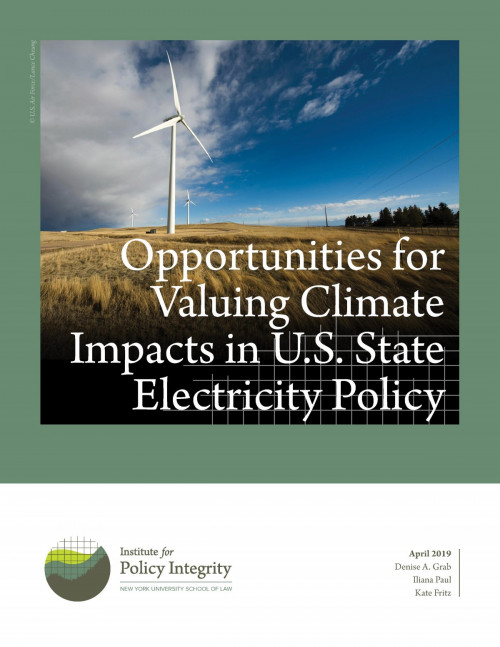
Opportunities for Valuing Climate Impacts in U.S. State Electricity Policy
With an absence of federal leadership on climate change, many states have worked to reduce greenhouse gas emissions on their own, often by incorporating a broader range of considerations into electricity policy. Our report assesses the potential to expand the valuation of climate damages in state electricity policy using Social Cost of Carbon metrics. We examine existing statutes and regulations in all 50 states to identify opportunities for valuing climate impacts around the country.
-
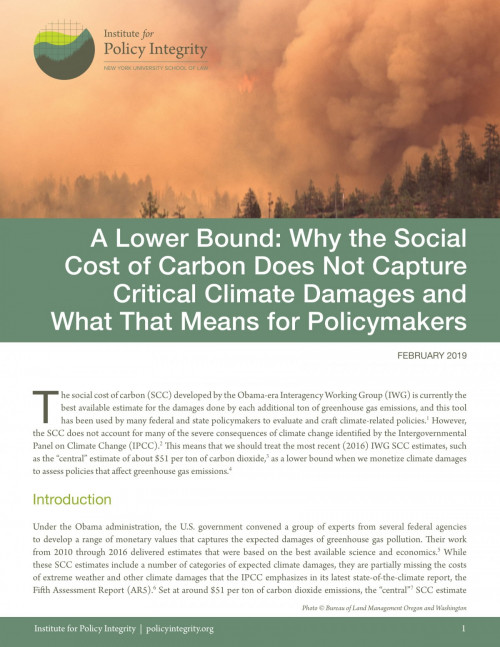
A Lower Bound
Why the Social Cost of Carbon Does Not Capture Critical Climate Damages and What That Means for Policymakers
The Social Cost of Carbon, developed by the Obama-era Interagency Working Group (IWG), is the best available tool for measuring the economic damages from greenhouse gas emissions. It has been used in analysis for over 100 federal regulations that affect greenhouse gas emissions, as well as by a number of states in electricity and climate policy. Still, many significant impacts identified by the Intergovernmental Panel on Climate Change are difficult to quantify and so have been omitted from the IWG SCC estimates. Impacts such as increased fire risk, slower economic growth, and large-scale migration are all unaccounted for, despite their potential to cause large economic losses. Our new issue brief discusses these omissions and other variables that will influence climate outcomes. We encourage policymakers to account for this likely underestimate by viewing the SCC as a lower bound for damages.
-
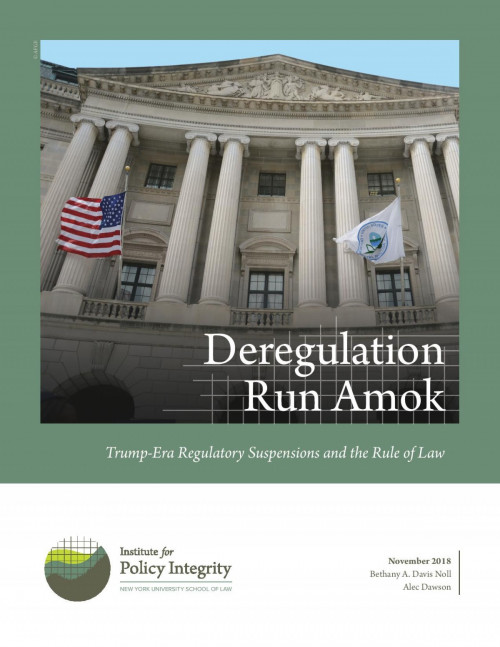
Deregulation Run Amok
Trump-Era Regulatory Suspensions and the Rule of Law
Our report provides a survey of the legality of Trump Administration’s regulatory suspensions. Looking at a number of cases, we discuss the administration’s disregard for notice-and-comment requirements, statutory restrictions, and the reasoned explanation requirement. We also lay out some of the challenges facing advocates, and the strategies by which agencies have evaded review.
-
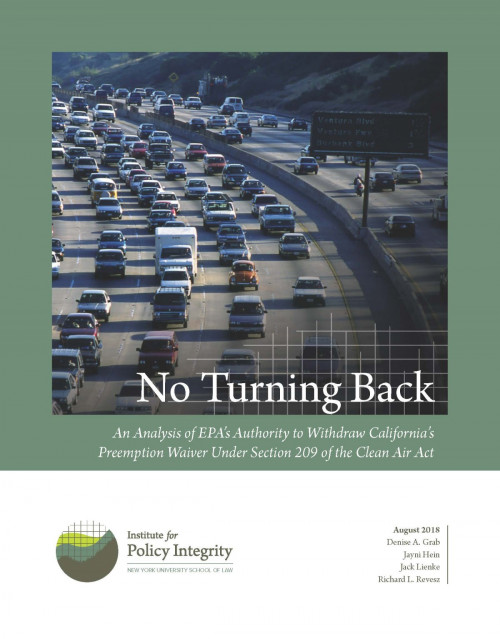
No Turning Back
An Analysis of EPA’s Authority to Withdraw California’s Preemption Waiver Under Section 209 of the Clean Air Act
For 50 years, California has enjoyed unique authority to regulate air pollution from newly manufactured motor vehicles. While the Clean Air Act preempts all other states from setting their own vehicle emission standards, California can request a waiver to do so if it determines that its standards are at least as protective of public health and welfare as federal standards issued by the U.S. Environmental Protection Agency (“EPA”). Once a waiver is granted, other states can adopt California’s more stringent vehicle emissions standards as their own. EPA has now proposed to withdraw the waiver California received in 2013 to set its own greenhouse gas emission standards. Because a waiver withdrawal would be entirely unprecedented, neither courts nor legal scholars have previously had cause to discuss the circumstances, if any, under which a waiver might permissibly be withdrawn. This report analyzes whether EPA possesses revocation authority and, assuming it exists at all, when and how such authority may be exercised. It is an update to the August 2018 version of the same report.
-
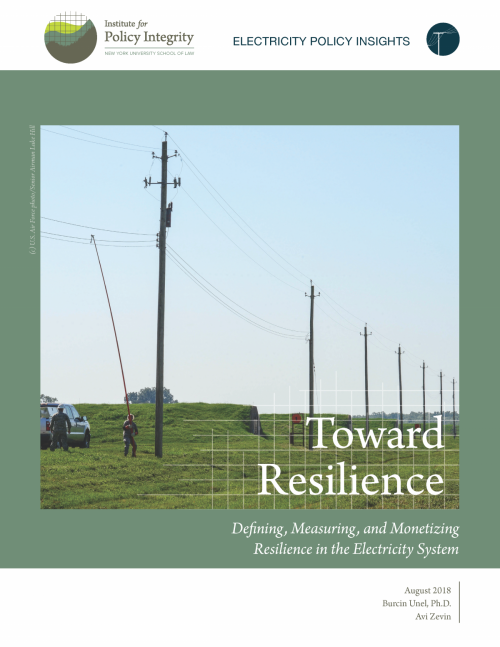
Toward Resilience
Defining, Measuring, and Monetizing Resilience in the Electricity System
Grid resilience—generally, the electric grid’s ability to resist/absorb, manage, quickly respond, and recover from/adapt to high-impact, low-probability external shocks—has been a concern for electric utilities and energy planners for decades. While recent extreme weather and cyber security concerns have prompted the federal government to pursue policies that support coal and nuclear power plants, a more systematic focus on resilience will lead to very different solutions than what has been proposed by the Department of Energy. Our report aims to assist policymakers in understanding grid resilience and evaluating potential interventions aimed at improving grid resilience.
